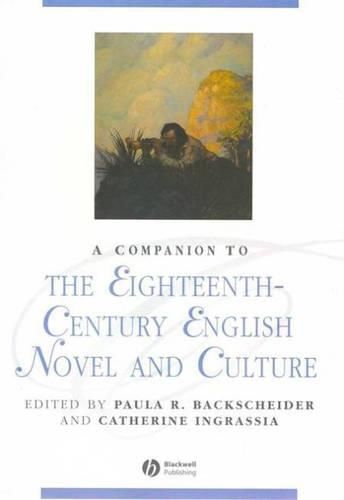Readings Newsletter
Become a Readings Member to make your shopping experience even easier.
Sign in or sign up for free!
You’re not far away from qualifying for FREE standard shipping within Australia
You’ve qualified for FREE standard shipping within Australia
The cart is loading…






A Companion to the Eighteenth-century Novel provides an up-to-date resource for the study of this subject, foregrounding those topics of most historical and political relevance to the twenty-first century. It considers not only the canonical literature of the period, but also the non-canonical literature, and the contexts in which the eighteenth-century novel was produced. The volume is divided into three parts exploring formative influences on the eighteenth-century novel, its engagement with the major issues and philosophies of the period, and its lasting legacy. Each of these three parts is structured around the same themes, including globalization, nationhood, technology, commerce, science, and lifestyles. This allows the Companion to capitalize on cutting-edge scholarship without obscuring traditional parameters for the study of the eighteenth-century novel, such as narrative authority, print culture, and the rise of the novel as a pan-European phenomenon. The Companion as a whole furnishes readers with a sophisticated vision of the eighteenth-century novel in its political, aesthetic, and moral contexts, and keeps them abreast of current critical trends in a field that has ch
$9.00 standard shipping within Australia
FREE standard shipping within Australia for orders over $100.00
Express & International shipping calculated at checkout
A Companion to the Eighteenth-century Novel provides an up-to-date resource for the study of this subject, foregrounding those topics of most historical and political relevance to the twenty-first century. It considers not only the canonical literature of the period, but also the non-canonical literature, and the contexts in which the eighteenth-century novel was produced. The volume is divided into three parts exploring formative influences on the eighteenth-century novel, its engagement with the major issues and philosophies of the period, and its lasting legacy. Each of these three parts is structured around the same themes, including globalization, nationhood, technology, commerce, science, and lifestyles. This allows the Companion to capitalize on cutting-edge scholarship without obscuring traditional parameters for the study of the eighteenth-century novel, such as narrative authority, print culture, and the rise of the novel as a pan-European phenomenon. The Companion as a whole furnishes readers with a sophisticated vision of the eighteenth-century novel in its political, aesthetic, and moral contexts, and keeps them abreast of current critical trends in a field that has ch